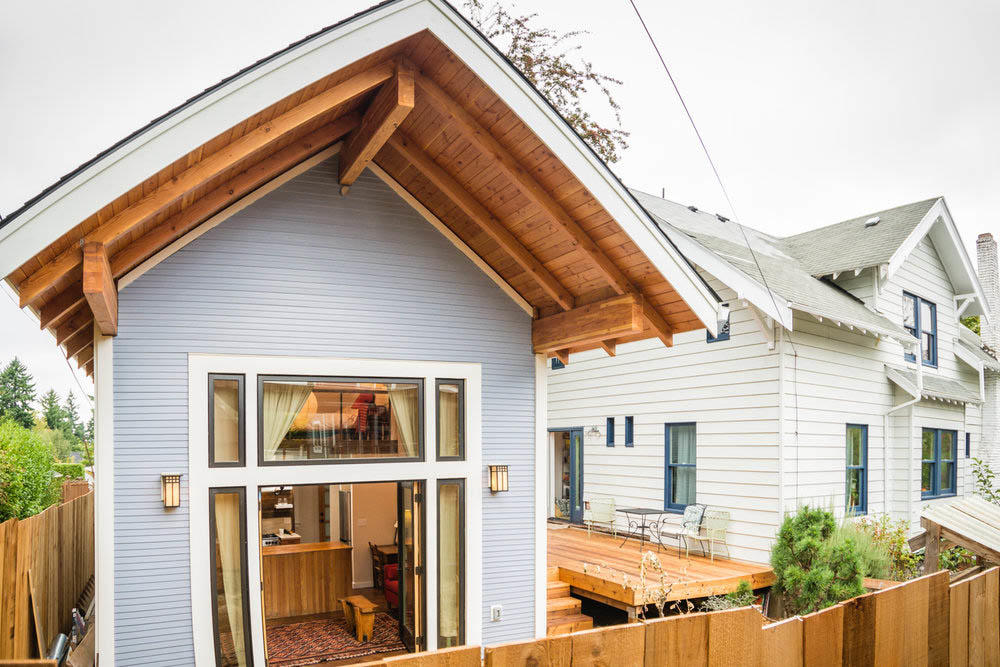Accessory Dwelling Units are residential housing units that function as as a secondary use to a primary use on an existing property. They function as fully independent living quarters with a kitchen, bathroom, and sleeping area. Examples are:
- “Mother-in-law" cottages
- Tiny Homes
- Garage apartments
ADUs are more affordable because they are smaller in size than a full-size home or apartment. Tampa’s code allows ADUs to be constructed in Seminole Heights, the area around Lowry Park, the East Tampa Overlay, and the Tampa Heights Overlay. Everywhere else in the City, ADUs may only be created for a family member and are called Extended Family Residences (EFR) and have slightly different requirements. The main residence must be owner-occupied. Other developments and use regulations apply.
ADUs and EFRs are considered “Special Uses” which means they are permitted only if a Special Use application is submitted and all the special use criteria can be met on the specific site.

